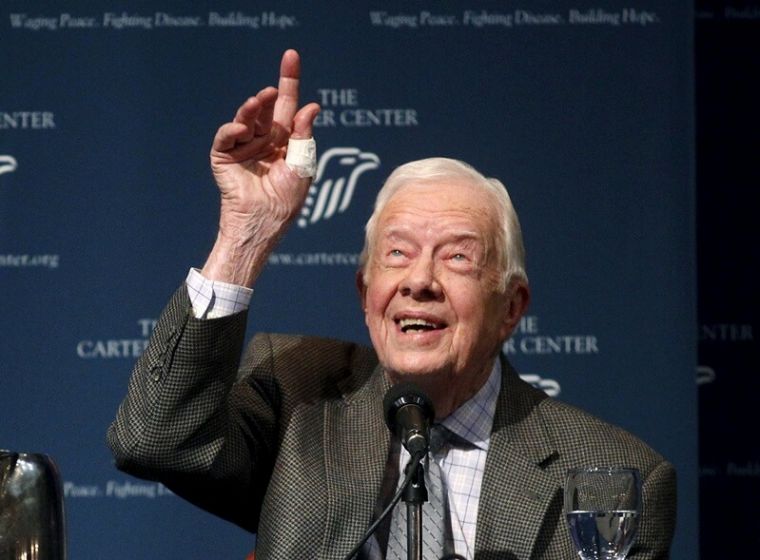Jimmy Carter moves to bridge racial gap in Baptist Church, bringing black and white churchgoers together

Former U.S. president Jimmy Carter, 91, is trying to bridge the racial gap in the Baptist Church and has teamed up with Pastors Frederick Haynes and George Mason in creating a "covenant of action" to bring black and white churchgoers together.
Haynes leads a predominantly black congregation while Mason heads a white congregation. Their movement has members of both congregations mentoring the youth, renovating camp grounds, and packing boxes at a food bank, according to Religion News Service.
For now, there are about a dozen partnerships created by Baptist groups from Alabama to Oklahoma, and they are hoping that their movement will grow to 100 such partnerships by 2018.
"What we are trying to do now with the New Baptist Covenant is to pair up African-American-dominated churches and white churches in the same community — or sometimes on the same street almost — to work together on projects that are good for the low-income people in that neighborhood," Carter explained.
Carter, who underwent a miraculous cancer treatment earlier this year, said he wants to bring black and white Baptists together because they actually got together in the Triennial Convention in the 1800s before the Southern Baptist Convention broke off in a dispute over slaveholding missionaries.
When he was younger, Carter grew up with African-American playmates who helped him realise "some of the problems of legalised racial segregation." Even though the civil rights movement back in the 1960s scored a victory, Carter believes the success was premature because people still have a long way to go in true racial reconciliation.
"I think that was a sigh of relief too early because we rested on our laurels and now we've found out in the last year or two, very vividly with the police attacks on innocent black young people, that we still have a long way to go in this country," Carter said.











